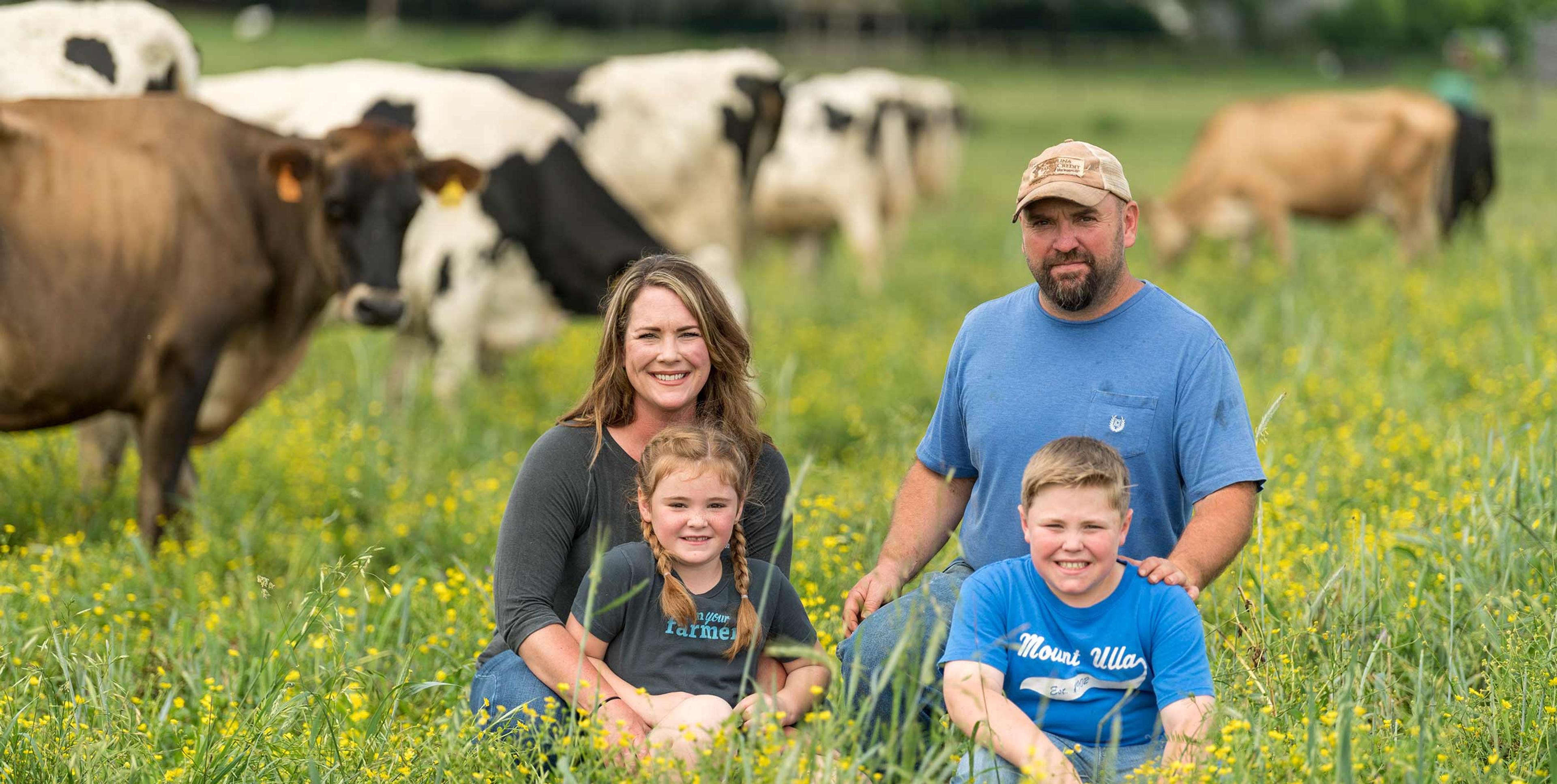
“I’m the third generation on this farm,” says Chris Hoffner. “I told my dad I was not going to be the one to lose it.”
On the morning of December 27, 1995, that promise was put to the test. Chris and Tara Hoffner’s herd of more than 100 cows lay prostrate on the ground, struggling to breathe, and Chris and Tara had no idea why.
With the help of a local veterinarian, the Hoffners soon realized that an extremely toxic pesticide had spilled onto their cows’ feed. Eighty-seven of the cows were saved that day, but Chris and Tara knew they had gotten lucky—the cows had gotten sick this time, but the pesticide in question is also lethal to humans, even in small doses. “We had to quit using that stuff completely,” Chris explains.
And with that, the Hoffners started their journey to become the second-ever organic dairy farmers in North Carolina. But it wasn’t always easy. Like so many dairy farmers, the Hoffners were at the mercy of fluctuating milk prices, and that made it hard to finance their transition to organic. They were also concerned about their cows’ health. "We were really worried about losing a cow if she got sick and we couldn't treat her with standard drugs." Chris recalls.
It wasn’t until Chris met with Organic Valley that he figured out how to make it work. “Farms used to depend on themselves to feed all their occupants, human and animal,” Chris explains, “and this gave us the opportunity. It makes sense both economically and environmentally, and we just feel safer knowing none of those chemicals are around.” They also quickly learned that organic farming keeps cows more healthy, and provides alternative methods to treat the occasional sick cow.
Tara agrees. “I think there’s going to be a big backlash against all the chemicals the world’s been using,” she says. “Our kids and the environment will only benefit from the decision to farm organically, and we feel really good about that.”
So do their cows.

















